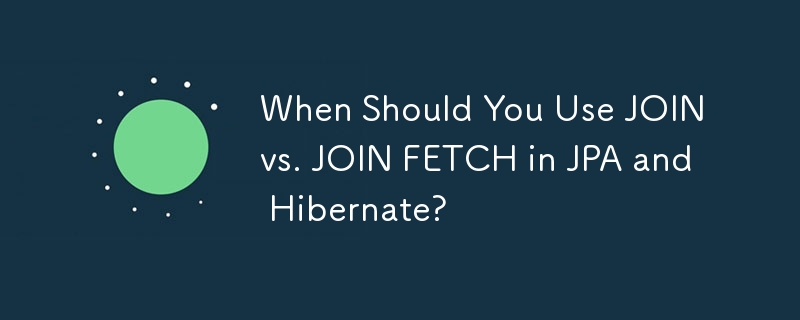

Understanding the Distinction Between JOIN and JOIN FETCH in JPA and Hibernate
When querying data using JPA and Hibernate, you may encounter the use of JOIN and JOIN FETCH. These join types serve different purposes and it's important to understand their distinctions to optimize your queries.
JOIN vs. JOIN FETCH
Both JOIN and JOIN FETCH establish relationships between entities in your query. However, the key difference lies in the way they handle the retrieval of related data.
Example:
Consider the following two queries:
FROM Employee emp JOIN emp.department dep
and
FROM Employee emp JOIN FETCH emp.department dep
Both queries will retrieve all employees who have at least one department. However, the first query will only return the Employee objects, while the second query will also return the associated Department objects.
When to Use JOIN and JOIN FETCH
Note: If you are using FetchType.EAGER in your entity mappings, a JOIN query will also fetch the related data, making it equivalent to JOIN FETCH.
Additional Considerations:
The above is the detailed content of When Should You Use JOIN vs. JOIN FETCH in JPA and Hibernate?. For more information, please follow other related articles on the PHP Chinese website!




